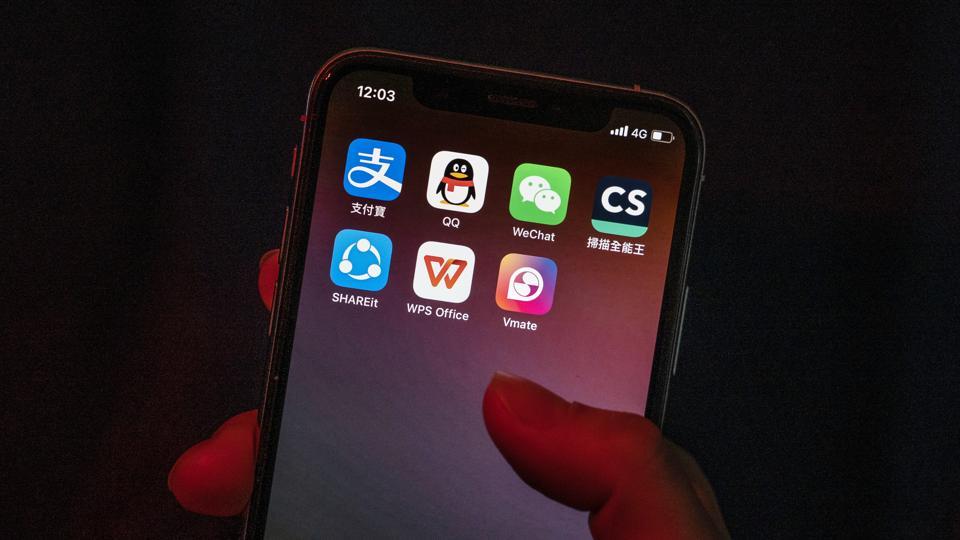WPS Office is a powerful office suite developed by China-based Kingsoft. Microsoft Office is a good alternative for the app and gives users access to Word, Excel and PowerPoint. Alternatives to banned Chinese mobile apps:The Ministry of Electronics and Information Technology (MeitY), Government of India, after receiving. 8- WPS Office: This was the office suite for.

President Trump on Tuesday issued an executive order banning transactions with eight Chinese apps, citing concerns about data privacy.
How to Change WPS Office App Language in Android Device 2019 In Android Device How to Change WPS Office App Language How to Change Language of WPS office in.
The order, which goes into effect in 45 days, prohibits transactions with Alipay, CamScanner, QQ Wallet, SHAREit, Tencent QQ, VMate, WeChat Pay, and WPS Office. The order builds on previous efforts by Trump to outlaw the use of WeChat and TikTok on similar grounds.
'The United States has assessed that a number of Chinese connected software applications automatically capture vast swaths of information from millions of users in the United States, including sensitive personally identifiable information and private information, which would allow the [People's Republic of China] and [Chinese Communist Party] access to Americans' personal and proprietary information,' Trump said in the order.
The president cited past cyber attacks connected to China, including a 2014 hack of the Office of Personnel Management and the 2017 Equifax hack that compromised the personal information of millions of Americans.
SHAREit allows users to transfer files from one device to another; CamScanner can be used as a PDF scanner; Tencent QQ is a messaging app; VMate is a video editing app; WeChat Pay can be used within the WeChat messaging app to make payments while AliPay is another payment app; and WPS Office is an app akin to Microsoft Office.
'I stand with President Trump's commitment to protecting the privacy and security of Americans from threats posed by the Chinese Communist Party, and the Department of Commerce will leverage the authorities of the E.O. to continue our mission to secure the nation, the economy, and the people of the United States,' Commerce Secretary Wilbur Ross said in a statement.
But with the order not going into effect until next month, it will fall to the incoming Biden administration to decide whether to enforce it or rescind it. China policy is one of the more complicated areas for Biden as his team weighs which policies to leave in place amid simmering tensions with Beijing.
Trump had previously issued an executive order in August banning transactions between U.S. companies and ByteDance, which is the parent company of TikTok, as well as Tencent Holdings, which owns WeChat.
The TikTok ban has yet to go into effect after it was stalled in court.
US President Donald Trump signed a new executive order on Tuesday, Jan. 5, banning American transactions with popular Chinese apps, including Jack Ma’s Alipay.
Aside from Alipay, seven other Chinese apps were also included on the list. Here’s the official rundown of the banned apps.

Trump did it again!
Wps Chinese Version
As the year starts, President Trump has yet again banned numerous famous Chinese apps, used by most Americans.
On Tuesday, Jan. 5, the president signed an executive order banning a total of eight Chinese apps in the country.
The order will take effect in 45 days, according to the memo.
The newly-banned apps include:
- Alipay
- QQ Wallet
- WeChat Pay
- SHAREit
- VMate
- CamScanner
- WPS Office
- apps under Chinese tech giant Tencent Holdings Ltd.
All of these applications were founded by Chinese companies, or mostly invested by Chinese people. This also includes billionaire Jack Ma’s Ant Group Co.’s online payment platform, Alipay.
So far, this app alone has already over 1.3 billion users, around the globe. Obviously, Americans are also part of this population since this app is not exclusive to Chinese people only.

Most of the apps that were included on the list are payment platforms.
Why Trump bans these apps
BBC reported that President Trump has a reason behind this sudden signed executive order.
The order said that “The United States must take aggressive action against those who develop or control Chinese connected software applications to protect our national security.”
It also added that “by accessing personal electronic devices such as smartphones, tablets, and computers, Chinese connected software applications can access and capture vast swaths of information from users, including sensitive personally identifiable information and private information.”
In more understandable manner, President Trump signs the executive order in fear that Chinese companies, aim to steal the personal information of Americans.
Not a new information
President Trump, along with other officials in the federal government, were no silent in their steps to curb Chinese apps off from the country.
They believed that these apps, specifically from China, have been stealing citizens’ information without them knowing.
Wps Office Chinese Download
Last year, several Chinese apps were already decided to be banned by the government. This list includes popular video-sharing app TikTok, along with telecoms giant Huawei.
Just like the new apps that were planned to be banned, President Trump also called out these apps for allegedly stealing information, in disguise of a simple software.
Unfortunately, the application of the executive order, at the time, didn’t push through after court initially finds no reason for the said banning.
The trial, as of now, is still pending in court.
ByteDance, owner of TikTok, even accused US for not taking the case seriously.
“For a year, TikTok has actively engaged with CFIUS in good faith to address its national security concerns, even as we disagree with its assessment,” TikTok said in a statement. “In the nearly two months since the President gave his preliminary approval to our proposal to satisfy those concerns, we have offered detailed solutions to finalize that agreement – but have received no substantive feedback on our extensive data privacy and security framework.”
